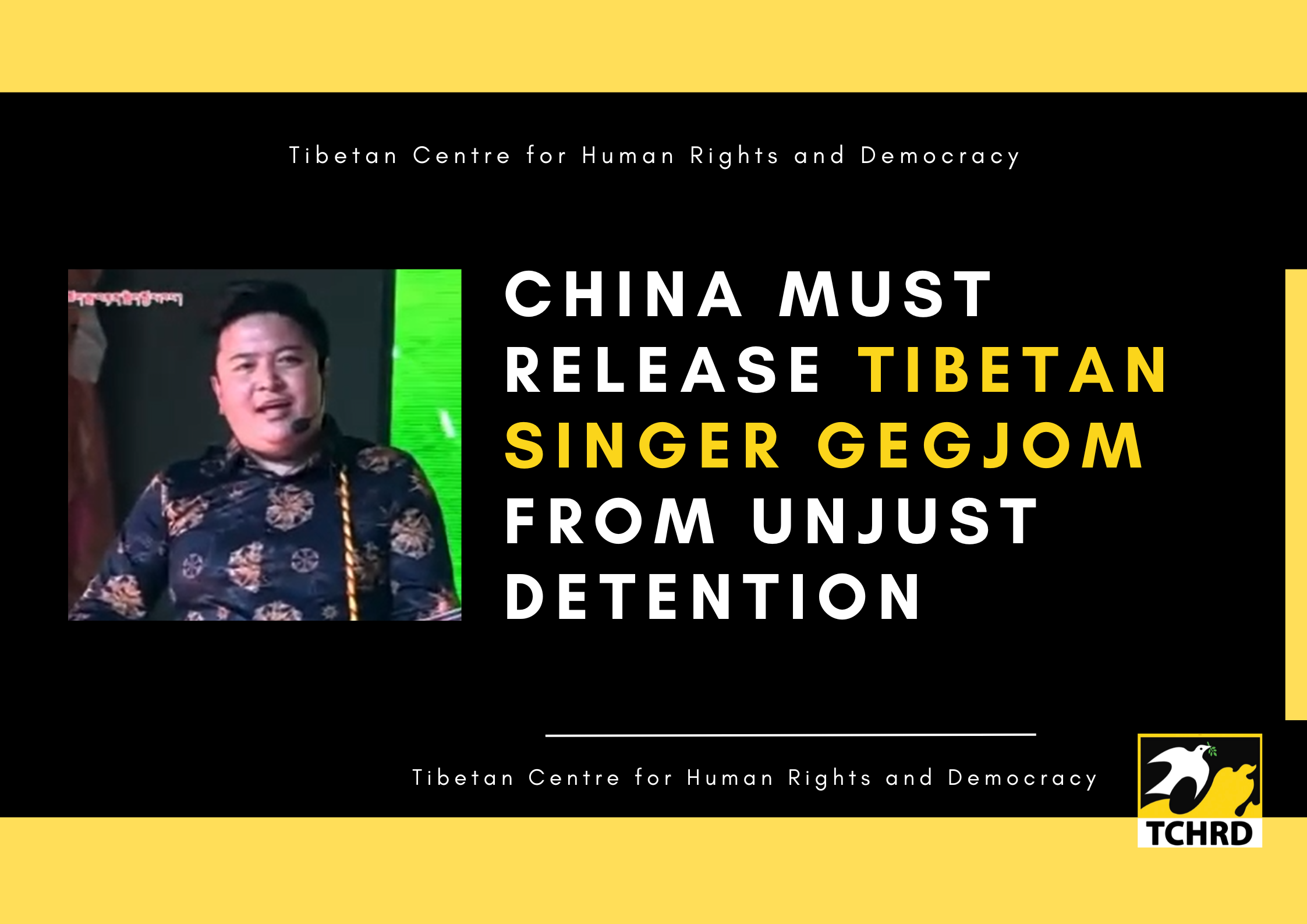
In a concerning development from Sichuan Province, Tibetan singer Gegjom has been detained by local police in Khyungchu County, with his whereabouts currently unknown. This report comes from the Tibetan Centre for Human Rights and Democracy (TCHRD), which has voiced serious concerns about the singer’s safety and well-being.
Gegjom’s detention occurred shortly after he was summoned to the local police station on February 12, 2024, during the Tibetan New Year. The singer, known for his evocative performances, did not return home that evening, sparking alarm among his family and friends.
When his family sought information from the police, they were told that Gegjom’s recent performance raised concerns, hinting at the contentious nature of his art without providing further details on his condition or location.
The song in question, “Tearful deluge of a sorrowful song,” laments the absence of the Dalai Lama and critiques the legitimacy of leadership in Tibet under Chinese rule. Its lyrics poignantly depict the plight of Tibetans facing injustice and repression, likening them to birds trapped in a cage. This piece, reflective of widespread grievances against Chinese policies, has evidently led to Gegjom’s current predicament.
TCHRD‘s Executive Director, Ms. Tenzin Dawa, stated, “Tibetan detainees are routinely tortured and ill-treated in the most inhumane manner in undisclosed locations with no access to due legal process.” She emphasized the urgency of granting Gegjom access to his family and called for his unconditional and immediate release.
ALSO READ: Police Clash with Tibetan Activists Protesting Wang Yi’s Visit to Australia
Gegjom’s arrest is indicative of the broader challenges faced by Tibetans, particularly artists and intellectuals, under Chinese governance. Despite constitutional guarantees of freedom of expression, the reality on the ground tells a starkly different story, with enforced disappearances and suppression of peaceful dissent becoming all too common.
The revised National Security Law, with its vaguely defined articles, has further enabled the authorities to label dissenting voices as threats to national security or social stability. This legal framework severely limits the avenues through which Tibetans can express their cultural identity and critique the government.
Gegjom’s case not only highlights the ongoing repression of minority rights and cultural expression in Tibet but also serves as a stark reminder of the limited space for free expression. Calls for his release echo the broader demand for respect for human rights and freedom of expression in the region.






